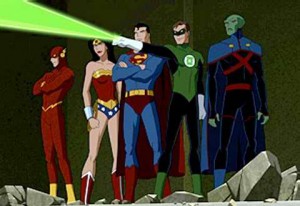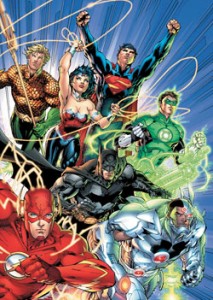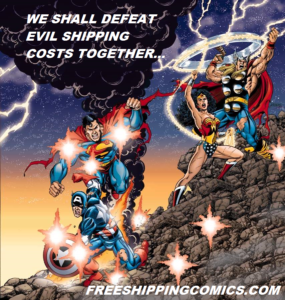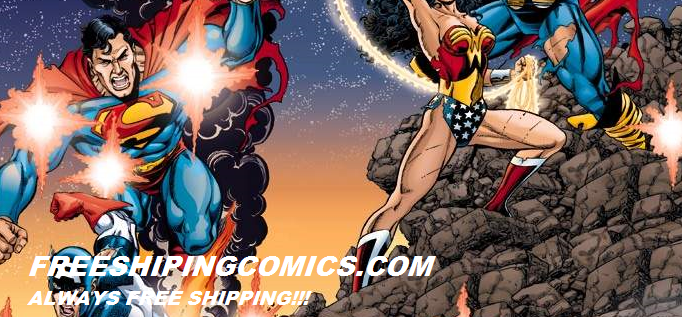Without further ado, I present Mr. DeMatteis. A man of many talents within the comic and music industry that has been gifted with a writing talent that leads our imaginations into places of uncharted territory. I had the honor of an interview, by which an in depth discussion was met…..
!) you hava a saying that goes The impossible isn’t a limitation, it’s an invitation.” Can you elaborate on that?
It’s my belief that we limit ourselves by our beliefs; that many people either listen to the people around them or their inner critic telling them that “You can’t do that, it’s impossible”—and they buy into and slink off on their way. But the very thing that’s impossible should be the goal. We should aim for it, leap at it, and manifest it. Even if we don’t get exactly where we intended to, I think the call of the impossible will always bring us someplace good.
2) What got you into writing comic books? Can you explain your run with DC comics.
I’ve always loved comics. In fact, I can’t remember a time when I wasn’t reading them: I started very young. They were a passion then and they remain a passion.
As for DC: they were the company I sold my first comic book script to, way back in 1977. That I’m still working for them today is fairly astonishing. Of course, along the way I’ve done a huge amount of work for Marvel Comics—as well as a variety of other publishers. But DC was my first stop.

3) Explain your “style” of writing. For example, how does a spiritual journey of pieces such as MERCY compare with The Justice League?
I don’t like to be pigeonholed, and I like to keep myself creatively challenged, so I’ve tried to let my passions—not the market—lead me. I’ve done psychological super heroes, comedy, autobiography, adult fantasy, kids’ fantasy, as many forms and genres as I could work in.
In some ways they don’t compare—but the unifying factor is me. No matter the form or genre, it’s my POV coming through the work; my voice defining it. I hope someone reading Justice League and someone reading Mercy could find at least a hint of the same writer there!
4) Going back to MERCY, I had a loved one who also had a stroke and experienced hallucinations while in and out of a coma. Does Mercy tell us that there is more to the subconscious than just simple nerves and implulses within the brain?
I certainly believe that. Just because someone’s in a coma, just because, strictly speaking, they’re not “here,” doesn’t mean they’re not aware and accessing other levels of reality. Going back to the so-called impossible: I think there are many incredible layers and levels of reality around us, so much more than what we commonly see, and that we can plug into them if we want to.
5) On an international scale. How does American comic writing compare with other foreign styles? (I.E. Marketing, genre, etc)
I don’t really know. I have no experience with how foreign comics are produced and marketed.
6) You released an album in the 90’s called How Many Lifetimes. Can you explain your transition from comics to music (vise verse) and how they relate? What did that album mean to you?
I was a musician before I was a writer, played in many bands, then got pulled into professional writing. (I think I’m far more suited to the lifestyle of a writer than the lifestyle of a musician, but I still play music and write songs.)
Doing that CD was a dream-come-true. I’m as proud of that as any creative work I’ve ever done.
Working on How Many Lifetimes was one of the greatest creative joys of my life.
7) In the 80’s you wrote a negative review for a Grateful Dead Album that was published in Rolling Stone. You mentioned that you stopped writing negative reviews because of hardcore Dead fans. Why stop? Isn’t there no such thing as bad publicity?
I just didn’t want to be the guy sitting around criticizing other people’s work, putting negativity out into the world. I would rather be the guy creating and being criticized.
That said, I love reading reviews and have tremendous respect for thoughtful, intelligent critics.
8) Tell me how pop culture and politics fit into comics? Examples include issue 3 of Justice League called Rocket to Russia. Did writers have a lot to say about the cold War, or was it just a conduit for entertainment?
In JL it was just a conduit for entertainment. With maybe a little social comment thrown in. If you want an example of me using politics more directly, you should check out The Life and Times of Savior 28 from IDW, where I use the political backdrop very directly. But, even there, it’s ultimately being used to push past politics into something deeper and truer.

9)I am a big continuity buff. Can you explain how continuity is kept for characters that “never age” in any run than you wrote?
As a fan I was a big continuity buff, as a writer, much less so. I’m more concerned with telling a good story than with paying homage to the past. That said, it’s important, in these shared universes, that we don’t violate what’s come before. And that’s one of the reasons why the editor is there: to reign us in when we’re in danger of doing that.
10) WHat are your latest projects? What news can we expect from the great DeMatteis?
I don’t know about the “great” DeMatteis, but I had an animated movie released two months back: Batman vs. Robin, available on DVD. My DC mini-series, Justice League: Gods and Monsters, launches this week. Keith Giffen and I continue to work on Justice League 3001. I’ve got a creator-owned mini-series, The Continuing Adventures of Augusta Wind, coming from IDW.
And I’m working on a live-action television pilot. Among other things!
-Adam
Look for Mercy: Shake the World—now on sale from Dover Books


